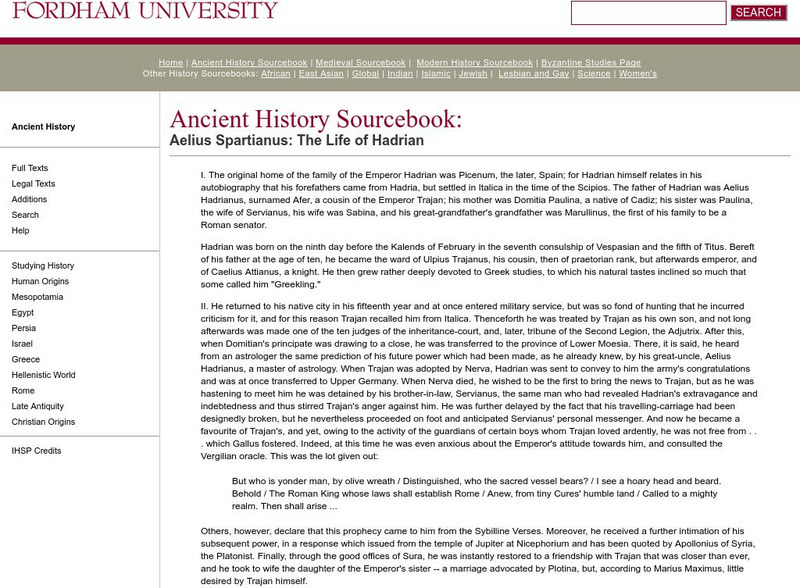Curated OER
Do the Research! Julius Caesar Becomes Roman Leader
In this research instructional activity, students find information about Julius Caesar becoming the Roman leader. Students then use this information to answer 4 short essay questions.
Loyola University Chicago
De Imperatoribus Romanis: Alphabetical Imperial Index
This is an alphabetized, comprehensive list of Roman emperors and their families, each connected to a linked site.
Internet History Sourcebooks Project
Fordham University: Ancient History Sourcebook: Aelius Spartianus
Fordham University provdides this very detailed study of the life and leadership of Hadrian. It looks at his background, his reign, and his death.
PBS
Pbs: The Roman Empire in the First Century
Discover Rome during the first century in this brilliant and detailed website Included is a timeline and description of the emperors, an explanation of social roles, and a wonderful description of life in Roman times including family,...
Forum Romanum
Outlines of Roman History: Table of Contents
The complete text of a 1901 textbook on Roman history by William C. Morey. However, the work is still useful today as if covers all the basic information about Rome from its earliest beginnings through the Republic and later the Empire.
Able Media
Ctc: I, Caesar a Study of the Imperial Romans
This lesson plan provides semester-long activities in which students research and write about selected emperors who ruled Rome during different parts of its history.
Franco Cavazzi
The Roman Republic: The Brothers Gracchus
This section gives a brief explanation of how the brothers influenced Roman society.
Boise State University
Boise State University: The Roman Revolution: The Second Triumvirate
This is part of a history presentation. It discusses Octavian, the Second Triumvirate, and the division of the Roman possessions into three zones. Click through each page to the Battle of Actium and the reasons for the final demise of...
Franco Cavazzi
Roman empire.net: The Second Triumvirate
This site from the Roman-Empire.net provides information on the Second Triumvirate (Octavian, Antony, and Lepidus) and an explanation of what happened after Caesar's death.








